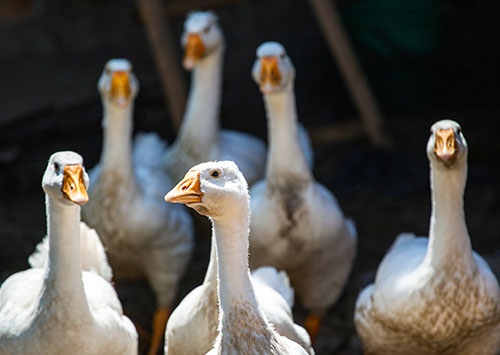Duck, Duck, Goose
Aug 03, 2021

Are you interested in raising ducks or geese? These birds are a fun and entertaining addition to any farm, and there are a number of good reasons to raise them.
Waterfowl can be a real benefit to your garden; they provide high nitrogen fertilizer and help control pests such as grasshoppers, snails, slugs, and Japanese beetle larvae. Additionally, some ducks, such as Campbells and Runners, are excellent layers and can produce over 275 eggs per year.
If you are new to raising waterfowl, here are three tips to get you started:
Ducks and geese are relatively easy to care for and are well worth the investment! For waterfowl feed, pools, and supplies for the coop, stop by your local Co-op!
For more content like this, check out the latest issue of the Cooperator.
Waterfowl can be a real benefit to your garden; they provide high nitrogen fertilizer and help control pests such as grasshoppers, snails, slugs, and Japanese beetle larvae. Additionally, some ducks, such as Campbells and Runners, are excellent layers and can produce over 275 eggs per year.
If you are new to raising waterfowl, here are three tips to get you started:
- Choose a breed to suit your needs
- Provide a comfortable environment
- Find the right waterfowl feed
Ducks and geese are relatively easy to care for and are well worth the investment! For waterfowl feed, pools, and supplies for the coop, stop by your local Co-op!
For more content like this, check out the latest issue of the Cooperator.